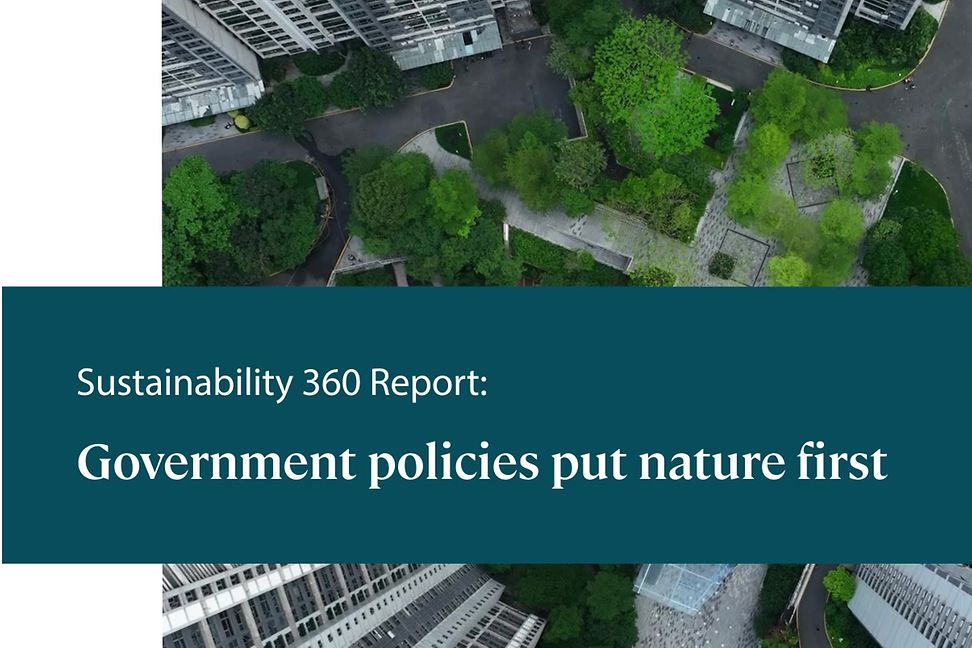Ben Palmer, Senior Sustainable Portfolio Manager, discusses how government policy is now driving forward the sustainability agenda, by placing nature at its heart.

While there are many factors that go into driving sustainability efforts, government policies play a vital role because they create the rules and incentives required to accelerate action. Without these policies, progress by society and businesses can be slow and uncoordinated. Given the urgent need for significant changes, supportive government policies are essential.
Recent international agreements like the 2022 UN Biodiversity Conference's goal to protect 30% of land and sea by 2030 and the 2023 High Seas Treaty highlight the growing focus on nature conservation.
On a practical level, new frameworks have been introduced to help companies monitor their impact on nature. The Task Force on Nature-Related Financial Disclosures (TNFD) and the Corporate Sustainability Due Diligence Directive (CS3D) in the EU require companies to address any negative impacts on human rights and the environment through their activities and supply chains. The UN COP28 marked a significant shift with member states committing to move away from fossil fuels, driven by their decreasing viability compared to renewables.
The International Energy Agency reported that $1.7 trillion was invested in clean energy technologies, compared to $1 trillion in fossil fuels throughout 2023.1 This trend is expected to continue, with countries like China rapidly expanding their renewable energy infrastructure and aiming to hit peak carbon by 2024, ahead of their initial 2030 target.2
Translating high-level sustainability goals into practical steps is crucial for meaningful progress. Effective strategies include balancing grid demand to enhance efficiency, addressing the intermittency of renewable energy sources and finding viable alternatives for heavy industries reliant on fossil fuels. Promising advancements in green hydrogen production also offer significant potential to reduce fossil fuel dependence, paving the way for a more sustainable energy future.
By integrating these policies and frameworks, companies and investors can better navigate the transition to a sustainable future, ensuring that economic growth aligns with environmental protection and resilience.
Learn more in our Sustainability 360 report.
[1] https://www.iea.org/reports/world-energy-investment-2023/overview-and-key-findings
This communication is provided for information purposes only. The information presented herein provides a general update on market conditions and is not intended and should not be construed as an offer, invitation, solicitation or recommendation to buy or sell any specific investment or participate in any investment (or other) strategy. The subject of the communication is not a regulated investment. Past performance is not an indication of future performance and the value of investments and the income derived from them may fluctuate and you may not receive back the amount you originally invest. Although this document has been prepared on the basis of information we believe to be reliable, LGT Wealth Management UK LLP gives no representation or warranty in relation to the accuracy or completeness of the information presented herein. The information presented herein does not provide sufficient information on which to make an informed investment decision. No liability is accepted whatsoever by LGT Wealth Management UK LLP, employees and associated companies for any direct or consequential loss arising from this document.
LGT Wealth Management UK LLP is authorised and regulated by the Financial Conduct Authority in the United Kingdom.